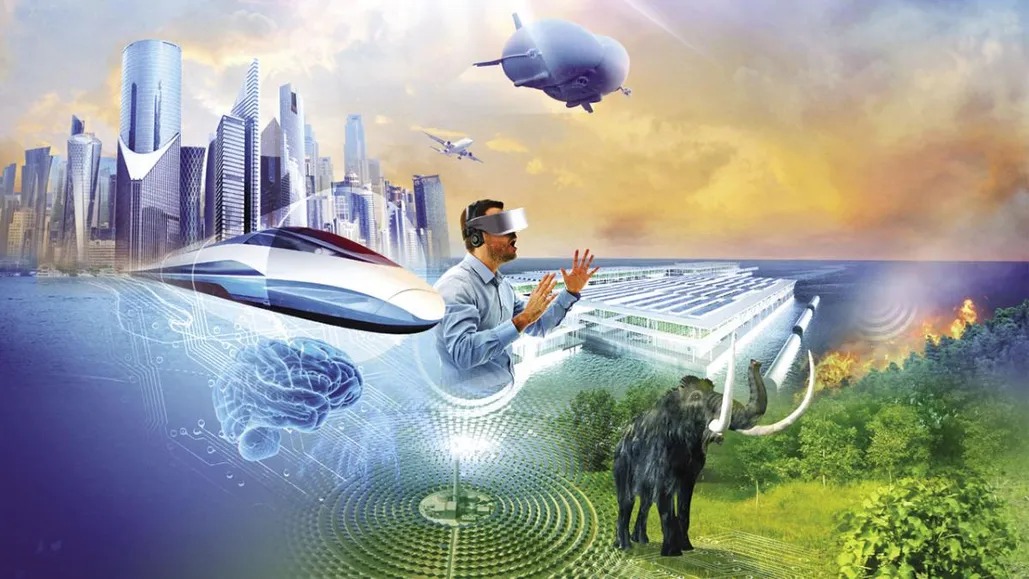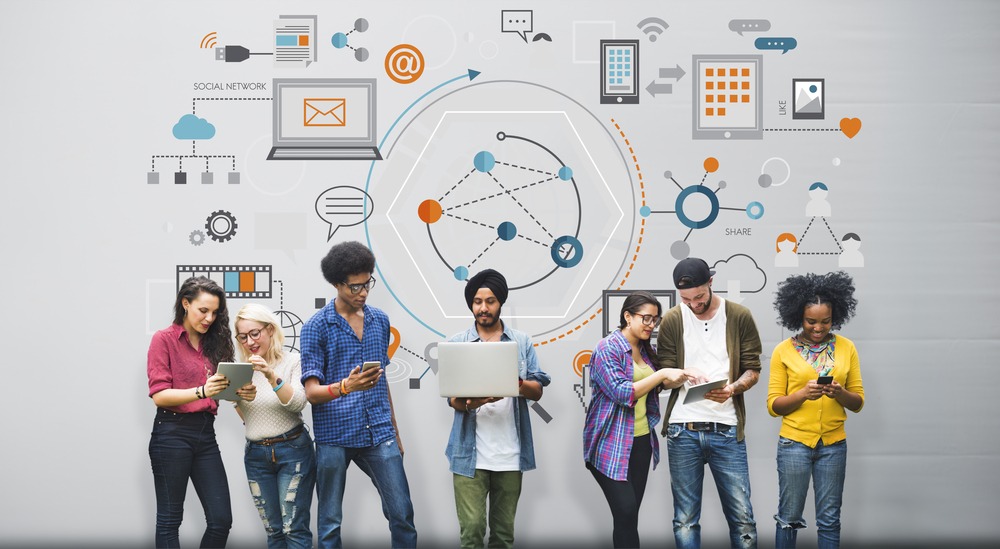How Emerging Technologies Are Changing Our Future
We are living in an era of rapid technological advancement, with emerging technologies transforming our ways of living, working, and the way the world operates at an unprecedented pace. From artificial intelligence to quantum computing, biotechnology to blockchain, these technologies are reshaping our vision of the future, offering us unprecedented opportunities and challenges.

1. The Rise of Artificial Intelligence: Empowering the Future
Artificial Intelligence (AI) is one of the most notable emerging technologies in recent years, revolutionizing the way we interact with the world. AI can learn and perform human tasks, such as:
Automating Tasks: AI can automate repetitive or tedious tasks, such as data entry, customer service chat, etc., improving efficiency and accuracy.
Personalized Experiences: AI can personalize services based on user preferences and needs, such as recommending movies, music, shopping, etc.
Medical Diagnosis: AI can assist doctors in making more accurate diagnoses and developing more effective treatment plans.
Smart Homes: AI can control home lighting, temperature, security systems, etc., providing users with a more comfortable and convenient living experience.
2. Quantum Computing Breakthroughs: Leaps in Computing Power
Quantum computing is a new computing paradigm that utilizes quantum mechanical principles to process information, possessing more powerful computational capabilities than traditional computers. Quantum computing can solve problems that traditional computers cannot, such as:
Drug Development: Quantum computing can accelerate drug development, discover new therapies, and improve drug development efficiency.
Materials Science: Quantum computing can help scientists design materials with superior performance, such as more efficient batteries and solar panels.
Financial Modeling: Quantum computing can help financial institutions perform more accurate risk assessments and investment predictions.
3. Advancements in Biotechnology: Transforming Life Sciences
Biotechnology is revolutionizing various fields in life sciences, such as:
Gene Editing: Gene editing technology can modify genomes to treat genetic diseases and develop new therapies.
Personalized Medicine: Genetic testing can help doctors tailor treatment plans based on patients' genetic information.
Biomaterials: Biomaterials can be used to create artificial organs, tissue engineering, etc., bringing breakthroughs to the medical field.
4. The Blockchain Trust Revolution: Reshaping Value Delivery
Blockchain is a distributed ledger technology that can record and verify transactions, ensuring data security and transparency. Blockchain can be applied in:
Finance: Blockchain can enable digital currency transactions, cross-border payments, supply chain finance, etc.
Healthcare: Blockchain can protect patient data security and improve the reliability of medical data.
Government: Blockchain can improve government efficiency, combat corruption, and establish more transparent governance systems.
5. The Interconnectivity of the Internet of Things: Building a Smart World
The Internet of Things (IoT) refers to the connection of various devices via the internet, enabling the collection, transmission, and processing of information. The IoT can be applied in:
Smart Cities: The IoT can optimize urban transportation, environmental monitoring, energy management, etc.
Smart Manufacturing: The IoT can improve production efficiency, reduce production costs, and enhance product quality.
Smart Agriculture: The IoT can help farmers monitor soil conditions, crop growth, and improve agricultural yields and efficiency.
6. Virtual Reality and Augmented Reality: Immersive Experiences
Virtual Reality (VR) and Augmented Reality (AR) technologies can create immersive experiences, transforming the way people entertain, learn, and work.
Gaming Entertainment: VR and AR can provide users with more realistic and interactive gaming experiences.
Education and Training: VR and AR can provide students with a more vivid and intuitive learning experience.
Medical Rehabilitation: VR and AR can assist patients with rehabilitation training, improving treatment outcomes.
Challenges and Opportunities
The development of emerging technologies has also brought about many challenges, such as:
Ethical Issues: Technologies such as AI and gene editing can raise ethical concerns, requiring careful use.
Employment Issues: Automation and AI can lead to the disappearance of some jobs, requiring career transitions and retraining.
Security Issues: Data security, cybersecurity, and other issues need to be addressed to ensure the safe and reliable use of technology.
Emerging technologies also bring us tremendous opportunities, such as:
Economic Growth: Emerging technologies can drive economic development, creating new industries and jobs.
Social Progress: Emerging technologies can improve healthcare, education, transportation, and other fields, improving people's quality of life.
Sustainable Development: Emerging technologies can help solve environmental problems and promote sustainable development.
Conclusion
Emerging technologies are changing our future at an unprecedented pace, bringing us unprecedented opportunities and challenges. We should embrace new technologies actively and strive to overcome the challenges posed by technological development, allowing emerging technologies to better serve humanity and create a brighter future.




